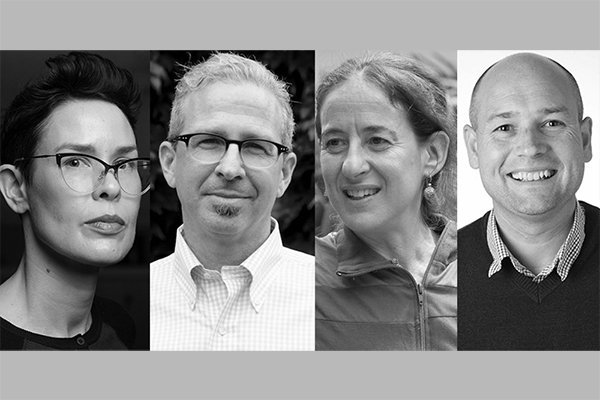Pre-Show Talk: I just wanted to be alone with her

TYPE: TALK
SPACE: PERFORMANCE SPACE
WHEN: 6.30pm – 8 Sep 2018
COST: FREE (RSVP Essential)
TICKETS: RSVP
This pre-show talk will discuss the inspiration behind the theatrical collaboration between the Sydney Environment Institute and The Living Room Theatre, I just wanted to be alone with her.
In the past 20 years, heatwaves have caused more deaths than all other natural disasters in Australia, and yet climate change is rarely represented in mortality statistics or coronial findings.
Those who are most vulnerable to heat deaths are the elderly, people with pre-existing medical conditions and individuals with limited social networks. These issues of heat-related death are evident in the case of the death of Lynne Barnett, who died at some point during the heatwave in January and February 2017 – Sydney’s warmest month on record. Lynne was an elderly woman, with a lung condition, who was socially isolated due to her limited social networks. It was her social isolation that resulted in her body being found almost two months after her death.
Due to the state in which Lynne was found, her cause of death was unable to be determined by the Coroner. However, her pre-existing medical conditions meant that she was physiologically vulnerable to heat and that extreme heat was a likely factor in her death. Yet this did not feature in the Coroners reports.
In drawing on the case of Lynne Barnett, this pre-show talk will meld together research on the social, political and physiological dimensions of heat vulnerability in Sydney, with the research of Rebecca Scott Bray, to explore how legal, societal, and physical understandings of death intersect with ageing, social isolation, inequality, and climate change.
This talk will discuss how the social and environmental contexts of one’s life and death can help fill the gaps in coronial findings and will explore how such understandings can lead to policy change surrounding climate vulnerability and adaptation for those who are most susceptible to the adverse impacts of heat.
Speakers
Associate Professor Rebecca Scott Bray, School of Social and Political Sciences
Professor David Schlosberg, Sydney Environment Institute
Associate Professor Ollie Jay, Thermal Ergonomics Laboratory
Chair
Professor Danielle Celermajer, School of Social and Political Sciences
Biographies
Rebecca Scott Bray is a criminologist whose research focuses on issues around death and the deceased in law and society. She has particular interests in death investigation, death review and the coronial jurisdiction, examining coronial law and practice and articulating issues, and in visual/cultural criminology with a focus on cultural practices such as death-related art and media. Rebecca has taught criminology at the University of Melbourne, and thereafter worked as Co-ordinator of Coronial Inquests for the Department of Human Services, Victoria, Australia. Before her appointment at the University of Sydney, Rebecca was a Research Officer at the Victorian Coroner’s Office. She was Director of the Sydney Institute of Criminology, Sydney Law School, from 2012-2016.
David Schlosberg is Professor of Environmental Politics in the Department of Government and International Relations at the University of Sydney, and Co-Director of the Sydney Environment Institute. His work focuses on contemporary environmental and environmental justice movements, environment and everyday life, and climate adaptation planning and policy. He is the author of Defining Environmental Justice (Oxford, 2007); co-author of Climate-Challenged Society (Oxford, 2013); and co-editor of both The Oxford Handbook of Climate Change and Society (Oxford 2011), and The Oxford Handbook of Environmental Political Theory (Oxford 2016). His current book project is on sustainable materialism, or the environmentalism of everyday life.
Ollie Jay is an Associate Professor in Thermoregulatory Physiology, and Director of the Thermal Ergonomics Laboratory, in the Faculty of Health Sciences at the University of Sydney, and Lead Researcher of the Charles Perkins Centre (CPC) Research Node on Climate Adaptation and Health. Prior to moving to Australia in January 2014, he was a tenured Associate Professor at the University of Ottawa in Canada (2008-2013). Originally from the UK, he obtained his PhD in Thermal Physiology from Loughborough University in 2002, which was then followed 4½ years of international postdoctoral research experience at Simon Fraser University (2003-05) and the University of Ottawa (2005-08). His research activities primarily focus on developing a better understanding of the physiological and physical factors that determine human heat strain and the associated risk of heat-related health problems during work and/or physical activity, as well as among the general population during heat waves.
Danielle Celermajer is a Professor of Sociology and Social Policy at the University of Sydney. Her research stands at the interface of theories exploring the multi-dimensional nature of injustice and the practice of human rights. She recently completed a European Union funded multi-country project on the prevention of torture, focusing on everyday violence in the security sector. Her publications include Sins of the Nation and the Ritual of Apology (Cambridge, 2009), Power, Judgment and Political Evil: Hannah Arendt’s Promise (Routlege, 2010) A Cultural History of Law in the Modern Age (Bloomsbury, 2018) and The Prevention of Torture; An Ecological Approach (Cambridge, 2018). She is now moving in to work on the relational intra-space between human and non-human animals.
- EXTERNAL LINKS:
- The Living Room Theatre
